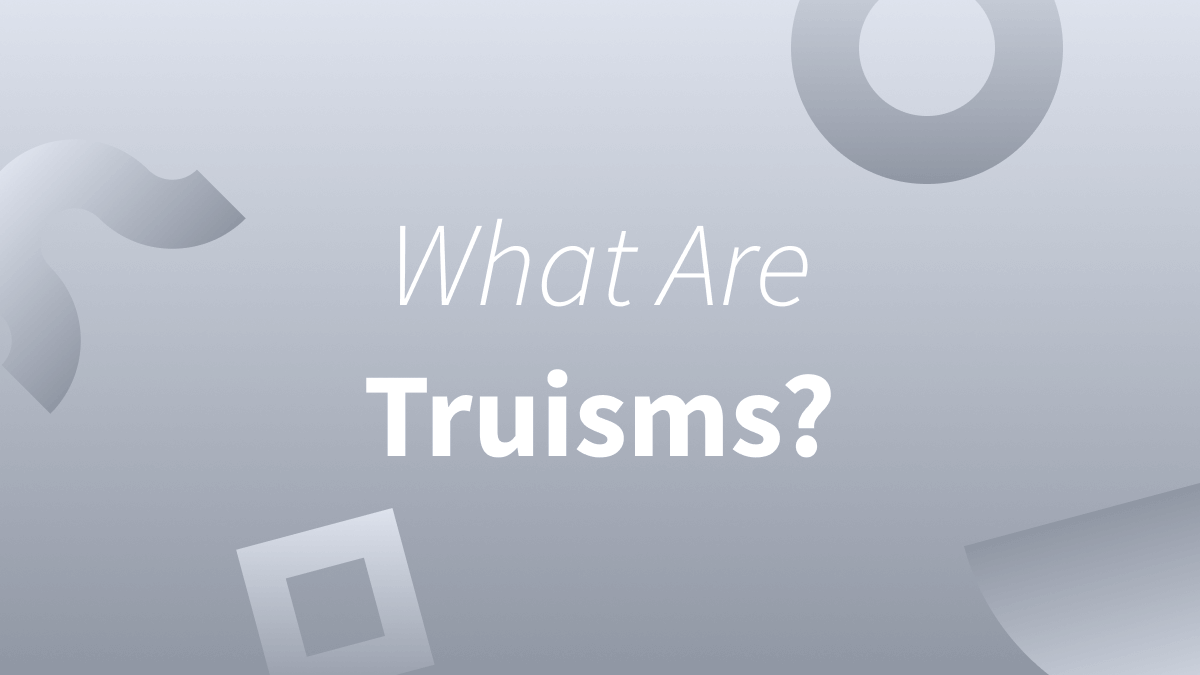A truism is an obvious statement that, although true, provides no helpful or interesting insights. Truisms are often used to express common wisdom, but they are so self-evident and undeniable that they can be considered unnecessary.
For example, imagine someone losing a championship game, and someone says to them, “You win some, you lose some.” Not only is this statement incontestably true, but it is also not helpful at all and would be better off unsaid.
The use of truism in a sentence
I told her it would be a bad idea to start her thesis with a truism.
He replied with a truism, and surprisingly, I found it helpful and apt for the moment.
She stopped listening to Thomas when he replied with a truism.
Truism examples
Truisms are incredibly common, especially in casual conversation. Below, you’ll find a few examples of truisms.
Common truism examples
There’s no place like home.
What goes around comes around.
Knowledge is power.
Practice makes perfect.
Patience is a virtue.
Life is not fair.
Honesty is the best policy.
Truism as a rhetorical device
Although truisms are often considered meaningless, they are sometimes purposefully used as a rhetorical device to help establish common ground and simplify complex ideas.
For example, “Everyone makes mistakes” is a truism because it states an obvious truth. However, it also helps foster a forgiving and understanding atmosphere, which is particularly beneficial in situations where there is a lot of tension due to someone’s errors.
Additionally, the truism “Money can’t buy happiness” simplifies the complex belief that life is about so much more than just making money.
Another benefit of using truisms when appropriate is that they’re usually short, simple, and memorable, which increases the likelihood that your audience will remember the message you’re trying to convey.
Types of truisms
Although there are significant overlaps, aphorisms, bromides, clichés, and platitudes have enough nuances to be considered distinct types of truisms.
- Aphorism: A concise expression of a general truth or principle that is typically handed down from generation to generation (e.g., “Imitation is the highest form of flattery”).
- Bromide: A trite and unoriginal phrase that is meant to be soothing or comforting (e.g., “It always gets worse before it gets better”).
- Cliché: An overused expression that, although truthful, no longer has the impact it once had due to its lack of originality (e.g., “Beautiful as a rose”).
- Platitude: A statement with moral or inspirational content that lacks depth due to its obviousness and overuse (e.g., “Time heals all wounds”).

